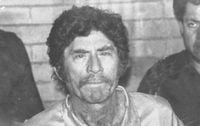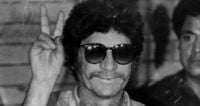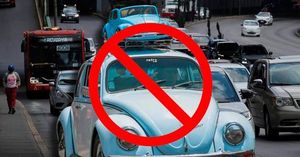ATIZAPÁN, México (EA) — Ernesto Fonseca Carrillo, also known as Don Neto, the former leader of the Guadalajara Cartel, was released on April 5, 2025, after serving 40 years in prison for the kidnapping and murder of DEA agent Enrique “Kiki” Camarena. At 95 years old, Fonseca Carrillo had been under house arrest since 2016 at a residence in the Hacienda Valle Escondido neighborhood of Atizapán de Zaragoza, a municipality in the State of Mexico.
The Federal Attorney General's Office (FGR) confirmed that his release was in accordance with legal procedures after he completed his sentence for one of the crimes that marked a turning point in U.S.-Mexico relations regarding drug trafficking enforcement. Fonseca Carrillo was a founding member of the Guadalajara Cartel, an organization that dominated drug trafficking in Mexico during the 1980s.
Alongside notorious figures Rafael Caro Quintero, known as the Narco of narcos, and Miguel Ángel Félix Gallardo, referred to as the Chief of Chiefs, Fonseca Carrillo played a crucial role in establishing a drug distribution network that funneled narcotics into the United States. His family ties to other drug lords, including his nephew Amado Carrillo Fuentes, known as the Lord of the Skies, further solidified his influence in the evolution of organized crime in Mexico.
Fonseca Carrillo was arrested on April 7, 1985, in Puerto Vallarta, Jalisco, just days after the brutal murder of DEA agent Enrique “Kiki” Camarena and Mexican pilot Alfredo Zavala Avelar. Both men were kidnapped, tortured, and killed in Guadalajara, a crime attributed to retaliation against U.S. anti-drug operations that targeted the cartel.
His conviction for kidnapping, torture, and homicide ignited a diplomatic crisis between Mexico and the United States, with the U.S. government exerting pressure for years to bring those responsible to justice. Fonseca Carrillo spent time in various high-security prisons, including Reclusorio Norte and the federal maximum-security facilities of El Altiplano and Occidente.
In July 2016, a federal judge granted him an amparo, allowing him to serve the remainder of his sentence under house arrest due to his advanced age and health issues. With his release, Fonseca Carrillo becomes the first of the three founders of the Guadalajara Cartel to complete his sentence. Caro Quintero was recaptured in 2022 and subsequently extradited to the United States in 2023, while Félix Gallardo remains incarcerated and is set to complete one of his sentences in 2026, although he will remain imprisoned for other crimes until at least 2029.
The case of Camarena is seen as a watershed moment in U.S.-Mexico drug enforcement cooperation, marking the beginning of a more aggressive strategy from U.S. authorities and an increased involvement of agencies like the DEA in Mexican territory. The assassination of Camarena also prompted legislative and operational changes in both countries and influenced the rise of new criminal organizations following the collapse of the Guadalajara Cartel, such as the Sinaloa and Juárez cartels.
Although Fonseca Carrillo had remained out of the public eye since his transfer to house arrest, his figure continues to be emblematic in the history of drug trafficking in Mexico. His release has stirred discussions about the legacy of the Guadalajara Cartel and its ongoing influence in the current landscape of organized crime.
In a separate legal matter, Fonseca Carrillo received an amparo from a collegiate court in 2022 that annulled a sentence requiring him to pay over 20 million pesos in damages, which also indirectly benefited other convicted drug lords like Félix Gallardo.
As the U.S. and Mexico continue to grapple with the fallout from decades of drug-related violence and corruption, the release of Don Neto raises questions about accountability and the future of drug enforcement strategies in both nations. The legacy of the Guadalajara Cartel and its founders, particularly Fonseca Carrillo, remains a critical chapter in the ongoing battle against narcotics trafficking.
Ernesto Fonseca Carrillo's release marks a significant moment in the history of drug trafficking in Mexico, as it highlights both the complexities of the legal system and the enduring impact of organized crime on society. The repercussions of his actions continue to resonate, influencing the strategies employed by law enforcement and shaping public perception of the drug trade.
As the world watches, the implications of Fonseca Carrillo's release will likely fuel further debate about the effectiveness of current policies and the need for comprehensive reform to address the challenges posed by drug trafficking and organized crime.







